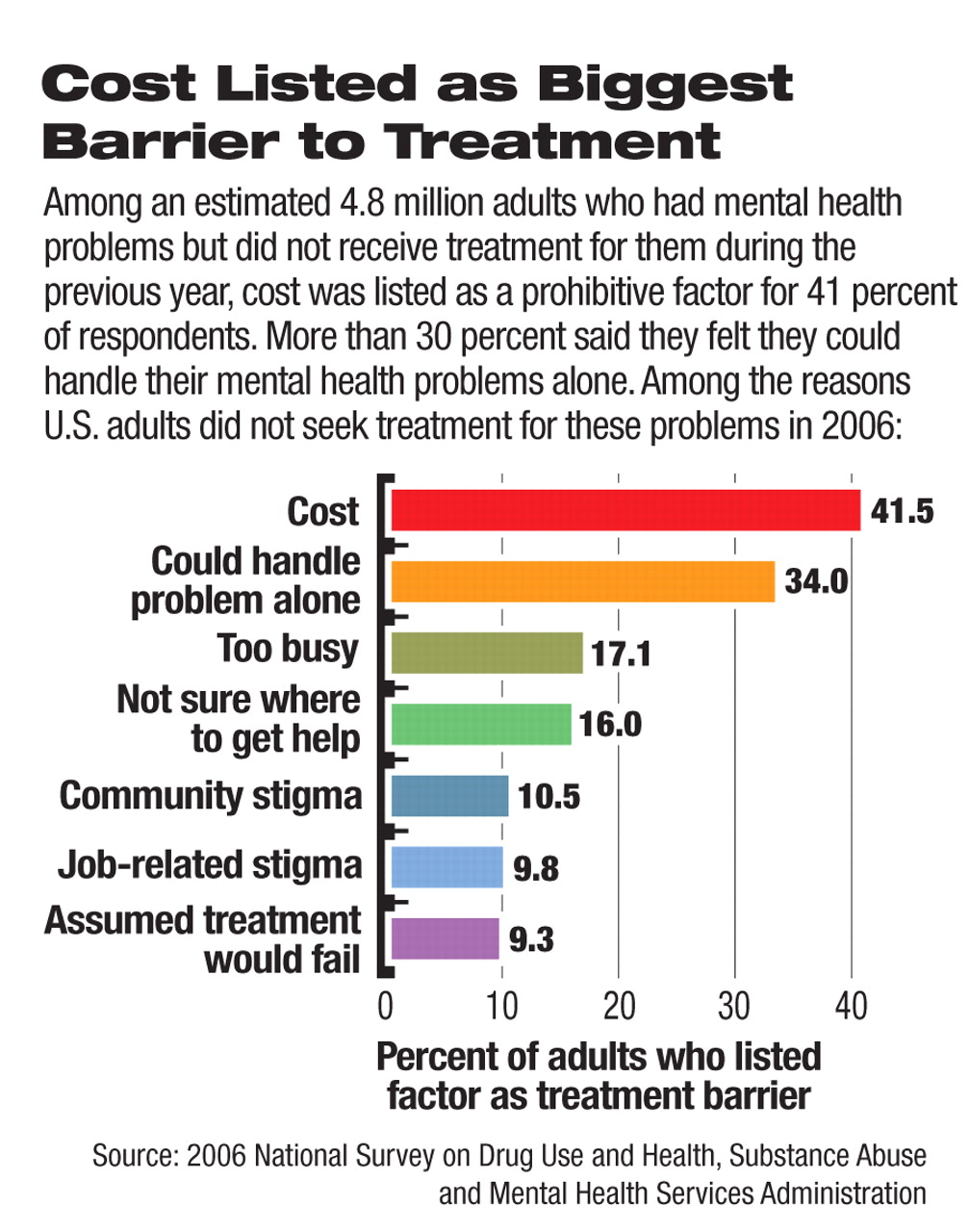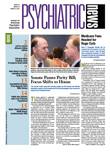Last year, nearly 25 million American adults were estimated to have experienced severe psychological distress, according to the results of an annual government survey, indicating that they may have a diagnosable mental disorder. But of those, only about 44 percent (10.9 million) received some sort of mental health treatment.
According to the 2006 National Survey on Drug Use and Health, those who meet criteria for serious psychological distress have a score of 13 or higher on the K6 scale, which measures symptoms of psychological distress during one month in the preceding year when respondents were at their worst emotionally.
In addition, an estimated 30.4 million adults indicated that they had at least one major depressive episode during their lives.
Almost 16 million American adults, or 7.2 percent of the population, reported experiencing a major depressive episode during the year prior to the survey,
The survey is conducted each year by the Substance Abuse and Mental Health Services Administration (SAMHSA) surveys approximately 67,000 noninstitutionalized civilians across the United states in their homes (see
Painkillers Pass Pot as Drug of Choice). The numbers are then extrapolated to arrive at U.S. population estimates.
Those categorized as having a major depressive episode reported experiencing a depressed mood or loss of interest or pleasure in daily activities for at least two weeks and met DSM-IV criteria for major depressive disorder.
The prior-year prevalence for a major depressive episode was higher for women than for men (9 percent versus 5.3 percent) in 2006.
The survey also found that serious psychological distress was associated with substance use.
For instance, past-year drug and alcohol use was higher in adults with serious psychological distress (27.2 percent) than in those without serious psychological distress (12.3 percent).
Among adults with serious psychological distress, nearly 1 in 4 (22.3 percent) was estimated to be dependent on or to have abused drugs or alcohol, while only 7.7 percent of those without mental health problems did so.
The survey also measured the prevalence of mental health treatment among adults and adolescents in the United States.
It found, for example, that 69 percent of those classified as having a major depressive episode in the prior year had received treatment for depression in that same period.
Last year, there were 10.5 million adults (4.8 percent) who reported an unmet need for treatment or counseling for mental health problems in the prior year—that is, there was a perception of insufficient treatment—a number that included 4.8 million adults who did not receive any mental health treatment.
Among the 5.6 million adults who did receive some type of treatment for a mental health problem in the prior year, almost 20 percent said that they felt that the treatment they received was not sufficient. For those who did not receive any mental health treatment, the cost of treatment was indicated as the number-one barrier (see
chart).
The survey also found that there were 3.2 million young people aged 12 to 17 who reported at least one major depressive episode during their lives. Of those, almost 39 percent received treatment for depression—23.9 percent saw a medical doctor or other professional for counseling but not treatment with medications, 2.1 percent used prescription medication only, and 12.7 percent received both types of treatment. ▪

